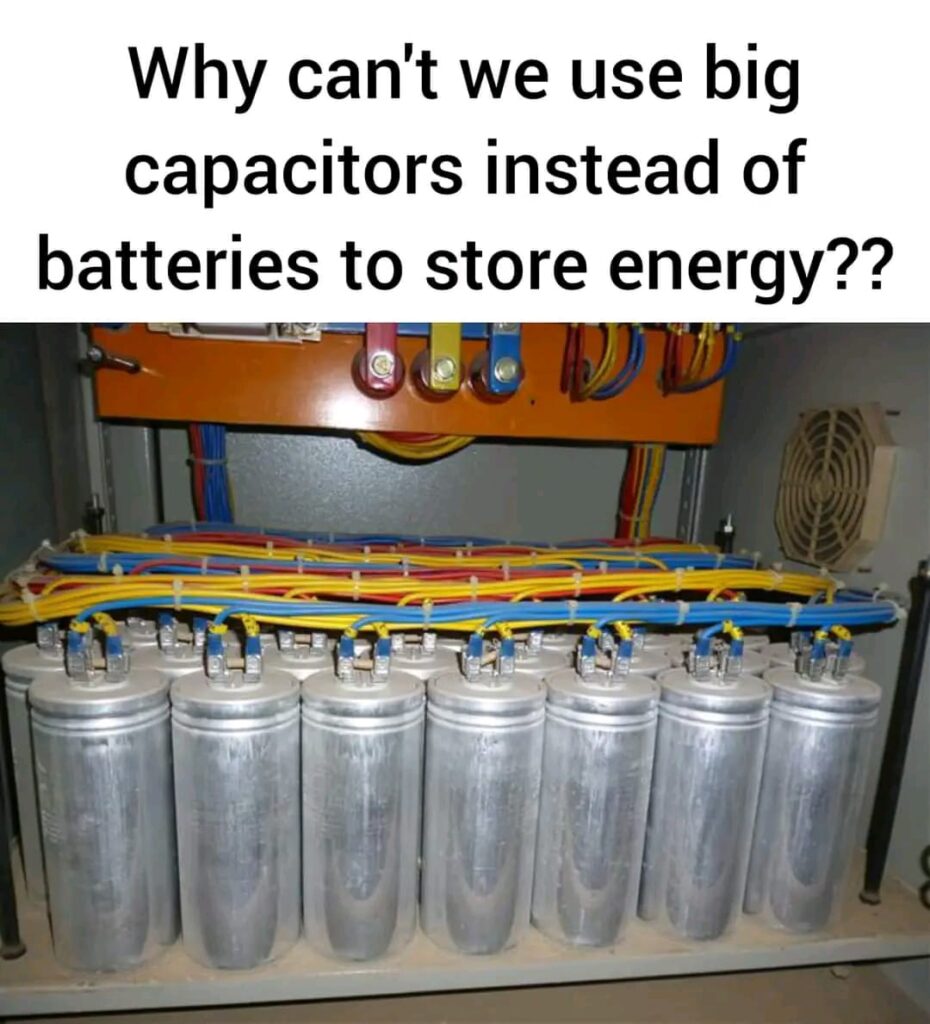
The question posed in the image is a common one and highlights some important differences between capacitors and batteries. Here are a few key points to consider:
1. **Energy Density**:-
Batteries generally have a much higher energy density than capacitors. This means that for the same volume, a battery can store much more energy than a capacitor. For instance, lithium-ion batteries have an energy density of around 250-270 Wh/kg, while capacitors (even supercapacitors) have an energy density of around 5-10 Wh/kg.
2. **Charge and Discharge Rates**: –
Capacitors can charge and discharge very quickly, often in a matter of seconds or less, whereas batteries typically take longer to charge and discharge. This makes capacitors suitable for applications where rapid energy delivery is needed, such as in power conditioning and backup power systems.
3. **Lifespan**:-
Capacitors have a longer lifespan compared to batteries. They can endure millions of charge-discharge cycles without significant degradation, whereas batteries typically last for a few hundred to a few thousand cycles before their capacity significantly diminishes.
4. **Voltage Stability**: –
The voltage in a capacitor drops significantly as it discharges, which can be problematic for applications requiring a stable voltage supply. Batteries, on the other hand, provide a more stable voltage output throughout their discharge cycle.
5. **Cost**:-
Capacitors are generally more expensive per unit of energy stored compared to batteries. This makes large-scale energy storage with capacitors less economically feasible.
6. **Applications**:-
Because of their different characteristics, capacitors and batteries are suited to different applications
. Capacitors are ideal for applications requiring rapid charge and discharge cycles and where long-term energy storage is not crucial.
Batteries are better suited for applications requiring longer-term energy storage with slower discharge rates.
In summary, while capacitors have their advantages in certain situations, their lower energy density and higher cost per unit of energy stored make them less suitable for most energy storage applications compared to batteries.